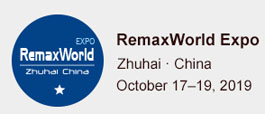Impression Products will be appealing last month’s federal court decision that favored Lexmark’s practices of controlling its cartridges after the first sale. Impression Products has retained counsel Andrew Pincus (pictured) to take the case before the US Supreme Court, assuming they will agree to hear the case.
The Federal Circuit decided en banc in February to retain its long-standing rule that overseas sales of a product don’t exhaust a patent owner’s right to sue in the U.S., concluding that a 2013 U.S. Supreme Court decision that foreign sales exhaust copyrights has no impact on patent law.
The Supreme Court has routinely been overturning patent holders’ positions supported by the federal circuit. It overturned existing copyrights in items first sold overseas in the 2013 Kirtsaeng decision. In 2008, the ruling in Quanta held that the first sale exhausts all domestic patent holders’ rights, potentially overturning several precedents relied on by Lexmark, such as the single-use case of Mallinckrodt, in question.
Lexmark claimed that dozens of remanufacturers, including Impression Products, infringed its patents when it imported Lexmark’s toner products back into the United States after they were first sold abroad.
Lexmark also argued that its patents were infringed when those remanufacturers sold remanufactured Lexmark cartridges that were originally marketed for a single use under its return and recycle program, also known as the “prebate” program.
The first court to hear the case, the US District Court, ruled that Lexmark’s cartridge return program was invalid under patent law, but failed to overrule the requirement that only U.S.-made cartridge cores could be used in remanufacturing as only those cores were free of patent rights. Both parties appealed.
The Appellate Court’s decision to hear the case “en banc” indicated that it was seriously considering overruling the existing precedents in Jazz Photo, regarding the international first sale doctrine, and Mallinckrodt, which allows for post-sale restrictions on patented items. But at the hearing last year, it was clear that the vast majority of the judges favored patent holder rights, and some were even hostile toward Impression Products’ position.
Decision is limited, and Supreme Court’s vision is clear
The ruling was therefore not a surprise. However, it is limited in scope and applicability. According to the decision, it applies only to cartridges sold by Lexmark directly to the end-user (no doubt to validate the prebate program’s provisions). Only a small percentage of cartridges are sold that way. However, the decision is silent as to how those cartridges would be identified by a third-party remanufacturer, or who has the burden to identify them.
The decision also employs confusing and circular language about “authorized” sales and “licensed” sales as transacted by patent holders. It leaves the marketplace open for a host of lawsuits brought by patent holders in all industries seeking to control their products for further financial gain. Consumer confusion, and exposure, will be increased. The U.S. Supreme Court has indicated it prefers and open marketplace and bright line rules that free consumers from interference in their use of lawfully-purchased products.

Lexmark’s victory reinforces U.S. patent owners’ ability to control the use of their products after they are sold, the practice Lexmark has been using to create fear and doubt in the marketplace since 1997. In other words, not much has changed. But it very well could if the US Supreme Court rules on the matter and in favor of Impression Products and the aftermarket. And that outcome is highly likely given recent history.
The Int’l ITC has filed friend-of-the-court briefs in this appellate case and in the Quanta, Kirtsaeng, Lexmark and Independent Ink cases. And we will again when it goes before the U.S. Supreme Court.
Copies of these briefs are available to Int’l ITC members at www.i-itc.org. The Int’l ITC wants decision makers at all levels of government to know about the importance of our industry. These briefs convince judges of the importance of a fair and open marketplace for imaging supplies. In spite of being beaten in its case with Static Control Components, Lexmark has continued to actively promote its return program.
The case has serious consequences for all remanufacturing industries, and “robust commerce” in general. If Impression Products is successful, international commerce in cores could begin again. And Lexmark’s prebate program would be dead under patent law, as decided in the Static Control Components case.
Details: http://www.irecyclingtimes.com/News-Detail?news_column_id=9&news_id=6292












